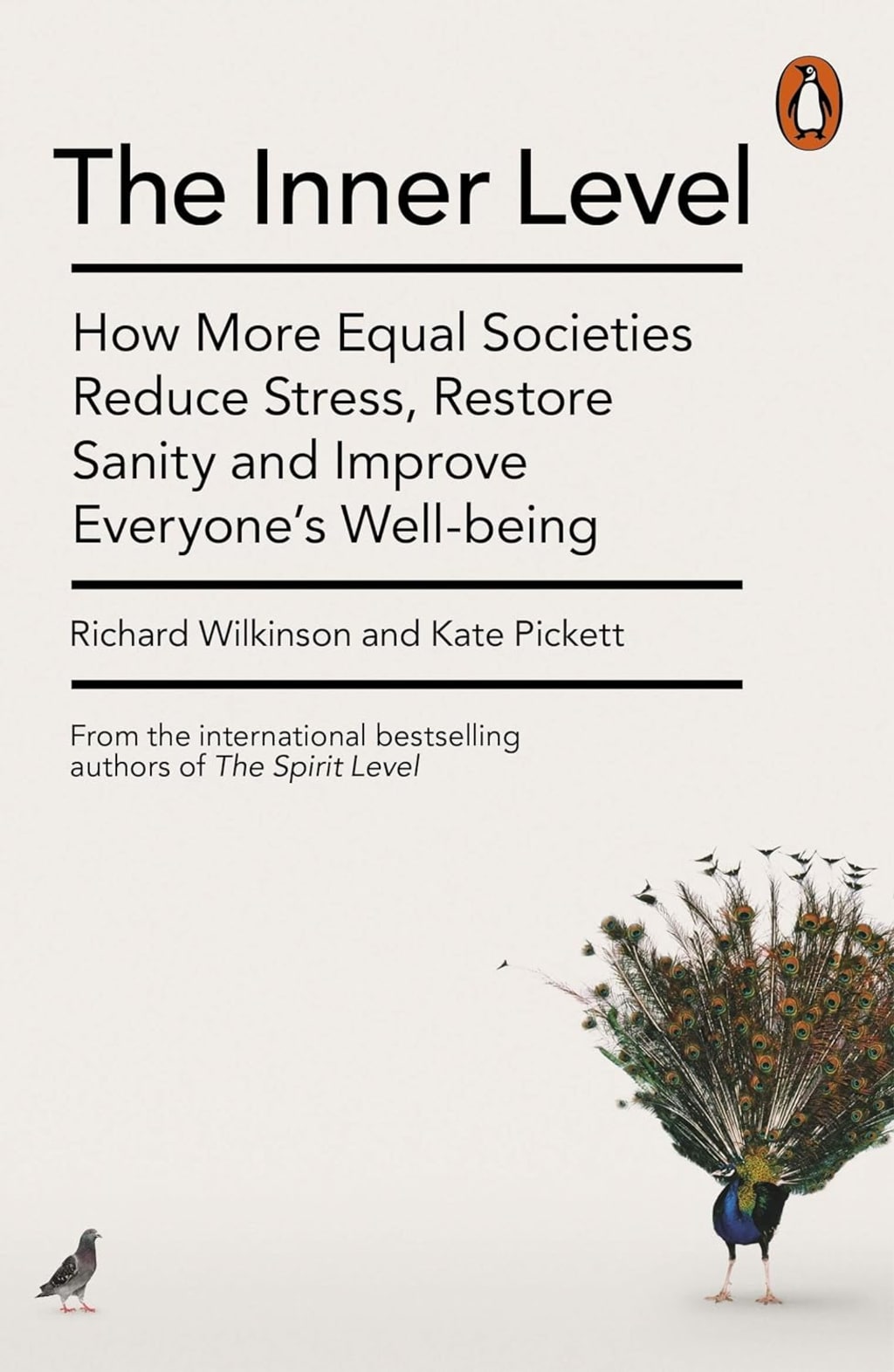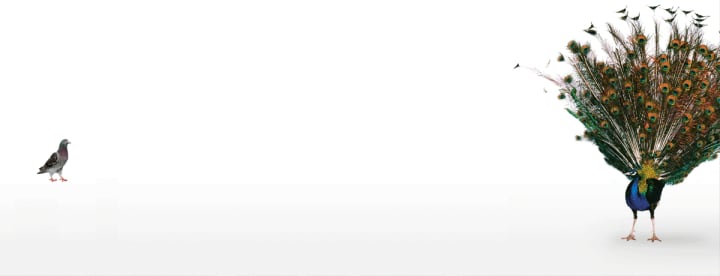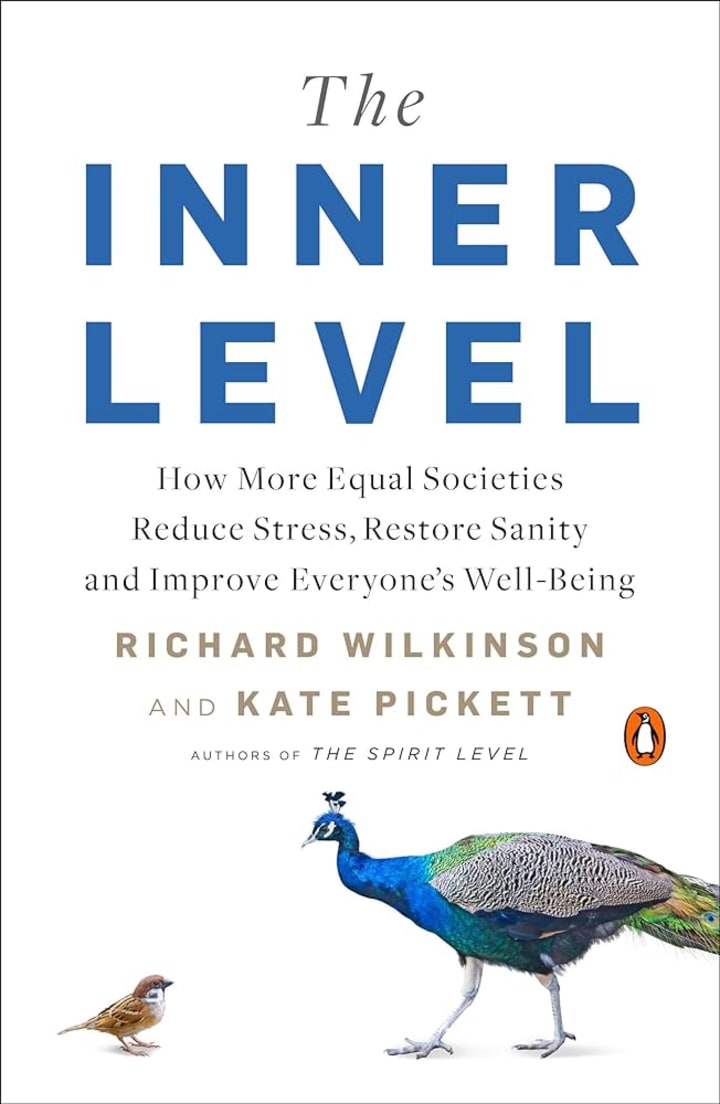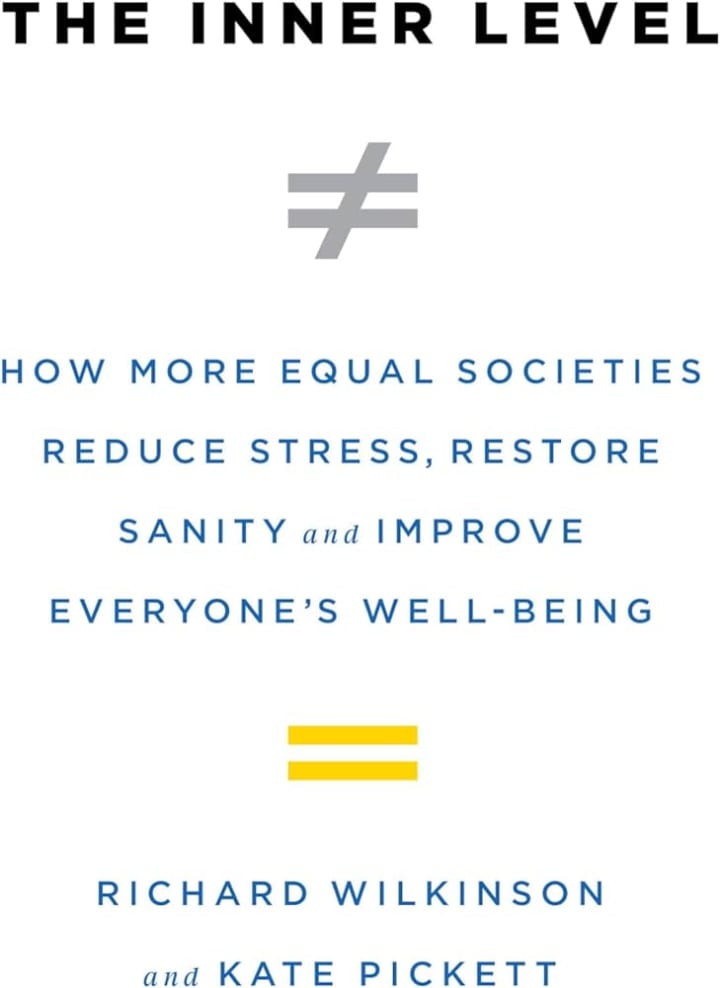Book Review: "The Inner Level" by Richard Wilkinson and Kate Pickett
5/5 - a fascinating look at how inequality causes mental illness...

I am not sure how exactly I found this book but as you can probably tell, I would be getting a lot of recommendations regarding modern political philosophy since that is the weird place I am at the moment. Why am I reading lots of modern political philosophy? Not only to better inform myself of the world's workings and how screwed up everything is, but also because I vowed myself to read more nonfiction in 2024. I knew I could not just stick to the nonfiction history books if I wanted to make this worthwhile and so, I took up some political philosophy texts.
You can find many reviews of the newly released ones on my page and this time, we are focusing on the book The Inner Level - an eye-opening account of why social inequality creates drastically poor mental health conditions for those at the bottom, and those near the top. And we get an investigation as to why throwing money at mental health services with inadequately trained staff to tackle the problem, is going to solve absolutely nothing.
So let's go through some of the advantages and disadvantages, some of the good points and the ones I found a bit confounding, the evidence and the knowledge I gained from this pretty awesome book about why the social inequality of a country is directly linked to the poor mental health of its citizens.

One of the things I have to point out that I did not really appreciate (and I'd like to get this out of the way first) is that the book uses quotations from social media chat comments to open the chapters. Now, as this book uses tons of evidence and lots of studies by very important people in the industry, I would have liked to see some of their quotations and what they had to say and that's only because I believe that social media posting is not the best way of seeing someone's true self. Ironically, this is part and parcel of what the book is about. Apart from this, I do not have many qualms with the book and therefore, will not be deducing any marks.
The main point of this book is that social inequality causes emotional, physical and psychological damage. The greater the social inequality the more damage is done no matter how much you fund ill-trained mental health services to make it better. Nothing will happen if you do not fix the level of social inequality experienced by a vast majority of the population. This can range from social isolation to addiction, from social anxiety to suicide, the mental health epidemic teeters quite literally on the gap between the very rich and the very poor.

Apart from this, social inequality begets distrust and breaks communities. Now that people are further apart, they can be better manipulated - consumerism is driven by unhappiness and unhappiness is driven by consumerism. This book makes a great case for showing us how advertising preys upon this, how advertisers know this and refers to a book I would like to read by Naomi Klein called No Logo in order to show how analysis has been going on for a long time about why this is set to work. But also the analysis shows how this sets up an entire target market to be kept within the strings and circles of pure and utter unhappiness.
Working out less fair for the poor, it shows how social inequality is not just bad for them, but is bad for everyone except for those at the very, very top. Therefore, advertisers are more likely to prey upon the vast majority, even those directly underneath the very, very top who struggle to maintain a social status that they feel should correlate to a position of being higher than they actually are on the class-scale. This leads to social anxieties about how we are perceived and the 'trickle-down' comes when everyone else, whoever is directly beneath who, is impacted except for the 1%. The greater the gradient on the pyramid of social class, the more everyone is frankly - doomed to suffer the impacts of poor mental health. (And, if you have read The Myth of Normal by Gabor Mate, then you would know that poor mental health only leads to poor physical health too).
Now, I initially thought that the perspective we have of our own social class and projecting what we thought was correct to gain status at any given time was limited to the fact that we would want to be perceived as better people for more position. In fact, this book taught me that it comes from a place of social stigma which is associated with people of a lesser social status being poorer at performing in any intellectual situation. However, there is no evidence for IQ being correlated to social status and therefore, this is a lie. Our want for status is a direct projection on to ourselves about how we want others to perceive us because we want to be better than the bottom.
Why? We have internalised the idea that poor people are morally and intellectually incapable, or at best, questionable. Though I think this is an abhorrent thing to think, I understand how this has been ingrained into what the book describes as a 'status chasing' culture. From keeping our houses clean only for guests to buying carrier bags of brand names on eBay just to walk around and look like we shop there - this culture of status is far worse and far more complex than I initially realised.

The next point I enjoyed though had difficulty understanding is how friendship has scientific backing for being beneficial to health. Now, I have a couple of friends that though I would not call close, are people who I would choose to spend lunchtime with and my mental health is completely fine with this loose meaning to friendship where nobody feels obliged to each other. I would be rather uncomfortable if one of my friends felt obliged to hang out with me on some given day if they did not feel like it. A looser, more flexible friendship is far better than a close one which could force people to partake in things that they probably did not want to do, or did not have time to do.
But, this seems to be besides the point where these writers are concerned and that is because they state that meaningful, close relationships are amongst the healthiest for us in terms of what benefits they offer. They present some core evidence that very much, made me think about the argument but I don't think I'm going to get close friends because of this. I really do prefer things the way they are, it's far better this way for all of us. Though I did enjoy their argument and thought it was really well articulated, this is not something I will be taking with me when I go into the world after reading the book.
One of the arguments I liked in this book is that the appearance of something matters more than the quality of the actual thing. This is relative obviously to the carrier bag argument and yet, it is also relevant to the cosmetic surgery rise amongst both men and women. This also means we will do anything to keep up appearances by means of a loss to ourselves, our authenticity being buried beneath the surface. Again, it goes back to the argument about cleaning our houses when a guest is to come over. The meticulous details we pay to it because it would be god awful to think that anyone actually lived there. But this is all dependent on the society in which we live. Greater social inequality causes us to present ourselves differently to how we actually are as we want to appear nearer to the top than the bottom. Again, with the bottom being associated with lower intellect and greater moral questionability. guilt by association.
Another thing I learnt about social inequality from this book is that greater mental health problems are associated to a low quality of life not because the quality of life is actually just bad, but the quality of life is bad in comparison to what people are advertised as normal. We know by now that advertising is not advertising us a product, but it is advertising us a lifestyle that is better than our own.
But, what I have learnt from this book is that people who are in more unequal societies tend to feel this status-chasing more than those living in more equal societies. Stress can be therefore felt by everyday activities which are made to benefit the few and not the many and thus, cause more stress than needed to those at the bottom. This, plus the maintainence of status and the requirement to be 'keeping up with the Joneses' means that poorer people in society can really never catch a break when it comes to not only consumerism, but also just everyday difficulties.
The book also discusses levels of narcissism increasing due to the fact people are masking more. People do not want to be seen by companies they work for etc. as being human beings with faults, instead they act narcissistic as a way of creating a protective shield between themselves and their work. It's like being a completely different person. My concern is that we are spending longer at work than any other generation or time in history and therefore, masking with narcissism can be a dangerous by-product of ill-satisfaction with work and thus, become a normal for people working (especially) professional jobs.
Narcissism also leads to us overestimating our own health and wellbeing - the book goes through studies in which people have overstated how well they and their societies are overall, looking at the difference in accuracy reported between more equal and less equal societies. Higher levels of inequality naturally leads to higher levels of narcissism amongst the professional classes - this too, is a mental health issue and creates physical health issues down the line.
From self-harm being more present in people who are self-critical to how our societies have been designed to keep us poor, sad and stupid - exploited by the 1%, this book gives an excellent insight into the rise in mental health problems in societies like ours and the propensity to be unmotivated to improve ourselves based on the fact that we are now aware that it won't make us happy.
From the idea that "we buy things to belong" all the way to talking about how addictions work. from pre-drinking and pre-loading all the way to narcissistic personality disorder, we get to see inside the workings of how our society is tearing apart our lives, our commenities and even our bank accounts. This is truly a fascinating book for anyone interested in how everything became so horrid so quickly.
About the Creator
Annie Kapur
200K+ Reads on Vocal.
English Lecturer
🎓Literature & Writing (B.A)
🎓Film & Writing (M.A)
🎓Secondary English Education (PgDipEd) (QTS)
📍Birmingham, UK






Comments (1)
I have to read this! Thank you! 💗💙